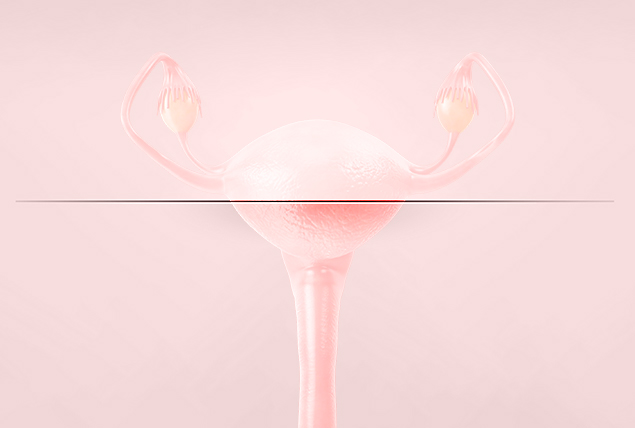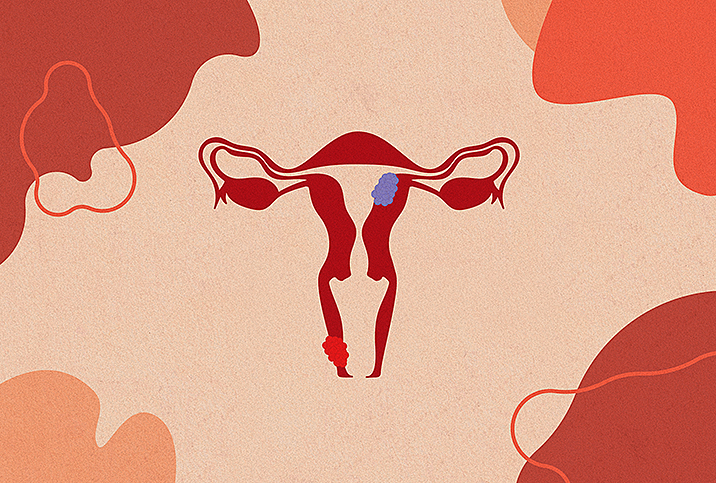What Is The Best Treatment Of Uterine Cancer For Me?

Uterine cancer begins in the lining of the uterus or, in rare cases, the muscle wall of the uterus. If you or someone you know has been diagnosed with uterine cancer, you’re likely curious about treatment options and prevention.
Is uterine cancer treatable?
Fortunately, uterine cancer is treatable. There are several treatment options depending on the severity. The treatment depends on the stage and grade of the cancer.
"In some cases, early-stage endometrial cancers may be able to be treated with a hysterectomy alone. However, more advanced stages may require chemo or radiation," said Leah Millheiser, M.D., OB-GYN, and Chief Medical Officer at Evernow in California.
What are uterine cancer treatments?
There are different hysterectomy procedures. If it’s deemed the best treatment for uterine cancer, your doctor will guide you to which type is right for you:
- Total hysterectomy: This procedure typically involves the removal of the uterus and cervix, but not the ovaries.
- Supracervical Hysterectomy: This removes the uterus, but not the cervix; this would typically be best for noncancerous conditions like fibroids or endometriosis.
- Hysterectomy with Oophorectomy: In this procedure, the uterus, ovaries (one or both), and sometimes the fallopian tubes are removed.
- Radical Hysterectomy: This is the most intense type of hysterectomy and involves the removal of the uterus, cervix, the top portion of the vagina, the tissue surrounding the cervix, and in some cases, the pelvic lymph nodes.
Kecia Gaither, M.D., OB/GYN at NYC Health + Hospitals/Lincoln in the Bronx, notes that any of the following may be treatments for uterine cancer, depending on its type and grade:
- Chemotherapy
- Radiation therapy
- Hysterectomy/radical hysterectomy
- Bilateral salpingo-oophorectomy (BSO), or removal of the ovaries
- Lymph node dissection: this procedure removes lymph nodes from the pelvis to check the grade of the cancer; typically it’s done in tandem with a hysterectomy.
- Hormone therapy in the form of progesterone may be given in certain cases. High levels of estrogen can sometimes accelerate tumor growth and progesterone can lower estrogen.
- Immunotherapy is sometimes used in cases of recurrent endometrial or uterine cancer. This treatment involves taking medication that helps the body better recognize and fight cancer cells.
Surgery will usually be the first line of defense in treating early-stage uterine cancer. If you’re pre-menopausal, you or your doctor may decide to remove the uterus, but not the ovaries, to prevent the body from going into early menopause. The downside of only removing the uterus is an increased risk the cancer will return.
If the cancer has progressed past a certain point, radiation post-surgery may be required to kill any remaining cancer cells.
How to treat uterine cancer for someone who wants biological children
While there is more than one standard treatment for uterine cancer, the first line of defense is usually some type of hysterectomy. A hysterectomy leaves a woman infertile, which can be an issue for someone who still wants to bear children.
In some cases, a "fertility-sparing" uterine cancer treatment may be deemed appropriate. In this case, a hysterectomy, chemo, or radiation would be put off in favor of a progestin treatment, a type of hormone therapy that may cause a tumor to shrink.
However, there are risks associated with this course of treatment. Any patient going this route will need an endometrial biopsy every 3-6 months, according to the American Cancer Society. If there is no sign of the cancer returning after six months, the person may try to conceive.
A hysterectomy or BHO is still advised post-pregnancy to keep the cancer from returning. Hormone therapy comes with side effects you should discuss with your doctor.
How can you lower the risk of developing uterine cancer?
"Stay at a healthy weight, discuss pros and cons of hormone therapy with your clinician, regular exercise, be evaluated for a genetic mutation if you have a strong family history of certain types of cancers, including uterine cancer, [and] treat any underlying conditions that may increase your underlying risk of endometrial cancer (e.g., endometrial hyperplasia)," Millheiser said.
See your physician regularly for check-ups, especially if you notice the following symptoms of uterine and endometrial cancer:
- Irregular bleeding
- Pain in the abdomen;
- Pain during urination
- Pain during sex
- Unintentional weight loss
- Protrusion or bloating in the lower abdomen
- Lump or growth in the vagina
Although survival rates will vary based on stage and other factors, uterine cancer has a five-year survival rate of 81 percent, largely because of its effective treatment options. However, uterine cancer deaths are increasing in the United States, and early detection paired with a treatment plan is crucial.
The bottom line
Targeted therapy is available to destroy cancer cells. Depending on which of the types of uterine cancer you have, your doctor will develop a plan that’s right for your body. Always speak with your doctor if you have questions or concerns.
Do you need a new mental health therapist or other healthcare professional as you undergo your uterine cancer treatment? Giddy Telehealth provides an easy-to-use online portal. Connect with hundreds of doctors who offer a full scope of medical care.


















